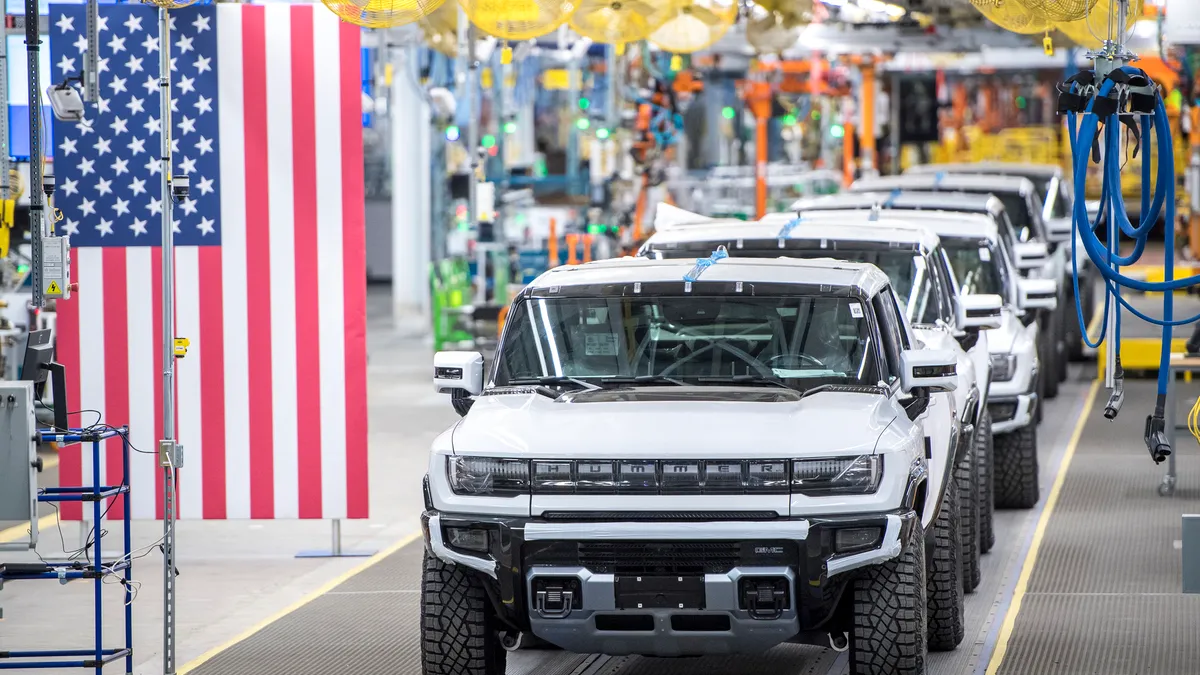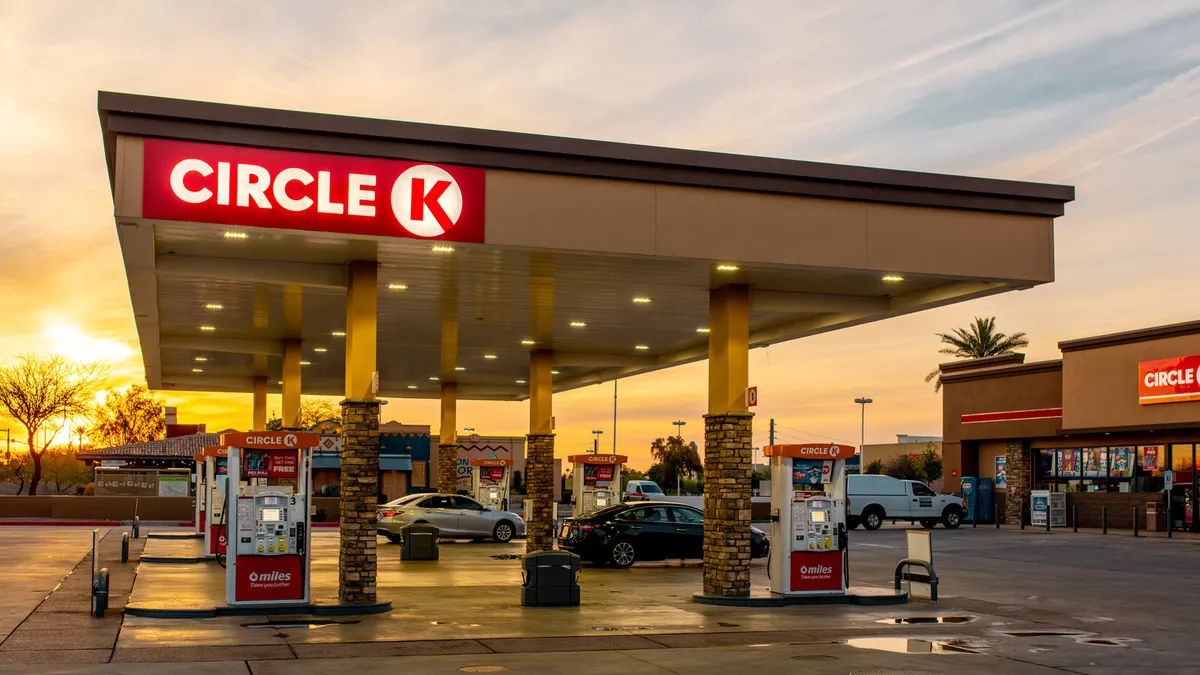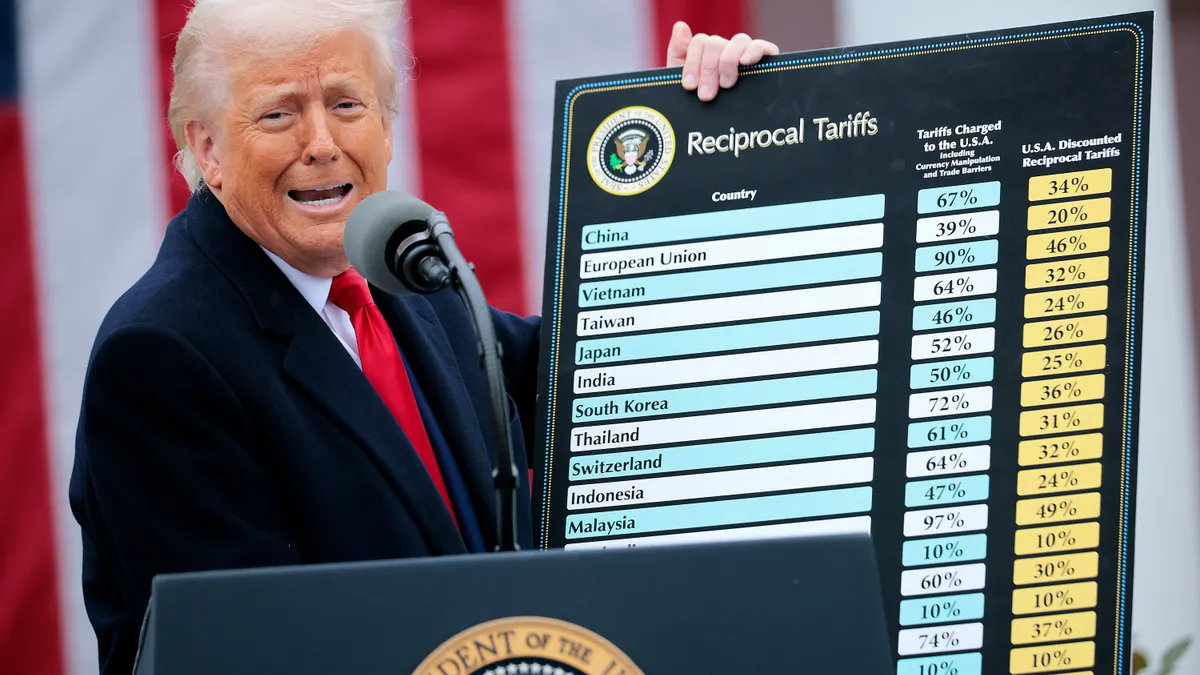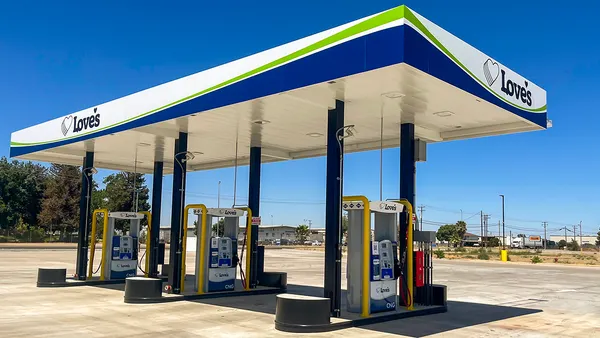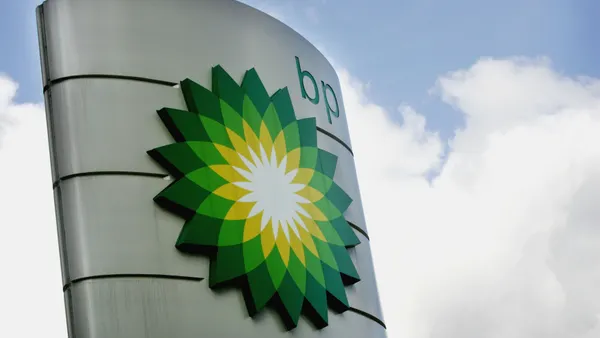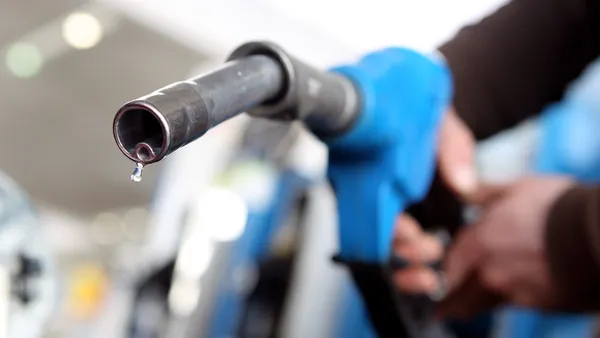Dive Brief:
- The Biden administration on Wednesday announced it has approved the electric vehicle charging network plans submitted by 35 states, representing $900 million in investment for Fiscal Years 2022 and 2023.
- The National Electric Vehicle Infrastructure program, or NEVI, will be rolling out $5 billion in funding over a five-year period to install chargers across 53,000 miles of U.S. highways. Officials say remaining state plans will continue to be reviewed on a rolling basis.
- The move comes as NACS and other retail associations have urged the U.S. Department of Transportation to incentivize refueling locations to incorporate EV charging.
Dive Insight:
President Joe Biden was at the Detroit Auto Show on Wednesday to announce the NEVI funding approvals and test drive new vehicles. He vowed "the great American road trip is going to be fully electrified.”
As the c-store landscape continues to evolve amid changing consumer habits and digital technologies, many chains are jumping at EV charging. Wawa began hosting EV charging at its stores in 2017, while 7-Eleven revealed plans in 2021 to develop at least 500 charging stations at 250 stores in the U.S. and Canada by the end of 2022. During this summer, Circle K set a goal to have 200 charging sites by 2024, while Phillips 66 made their own plans to bring EV drivers to its stores. And in one of the most ambitious EV initiatives the c-store industry has seen to date, the Pilot Company announced in July that it’s building a network of 2,000 fast charging stations across 500 of its U.S. travel centers and expects the first chargers to be ready for use in early 2023.
The president has set a goal for half of new U.S. car sales to be electric by 2030. Experts say achieving that level of EV adoption will require expanding domestic battery production capacity, in part due to purchasing requirements tied to federal incentives.
The Federal Highway Administration has said it is working to develop rules for how formula NEVI funds can be spent, and indicated it will finalize that rulemaking “expeditiously.” The rules would set standards for the national charging network, and the agency said it is considering a waiver from domestic purchase requirements “that will allow a short ramp up period for the domestic manufacturing of EV charging.”
Global battery production is now dominated by China, but U.S. automakers are working quickly to onshore that industry. EV purchase incentives also hinge on components manufactured in the U.S.
Pushback to the EV charging infrastructure plan laid out by the Biden administration in February has come from some states in the West with wider swaths of rural towns and empty stretches of highway. NACS was also against putting chargers at rest stops to avoid stifling private investment in EV charging, the association said earlier this summer.




